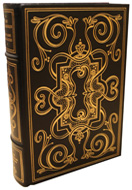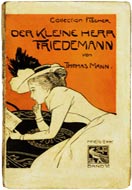Excellence in First-Year Writing 2011/2012
Hogg, Alan (Editor) / Nichols, Dana (Editor)
Verkäufer
Revaluation Books, Exeter, Vereinigtes Königreich
Verkäuferbewertung 5 von 5 Sternen
![]()
AbeBooks-Verkäufer seit 6. Januar 2003
Beschreibung
Beschreibung:
98 pages. 9.00x6.00x0.23 inches. In Stock. Bestandsnummer des Verkäufers 1607852756
Inhaltsangabe:
The solitary parts of the writing process can make us lose sight of the importance of conversation to any piece of academic writing. When we write to enter the scholarly conversation, to help address questions others have already asked and to raise—and often start to answer—new questions that can further the discussion, we often feel alone. But behind almost all academic writing is a conversation between the author and many other readers/writers, who are responding to drafts as the piece of writing takes shape. The English Department Writing Program and the Sweetland Center for Writing established a first-year writing prize two years ago in order to celebrate the accomplishments of student writers near the beginning of their careers at the University of Michigan. Last year we added the upper-level writing prize, to honor the excellent writing students continue to achieve as they pursue questions of particular interest to them in their majors. Writing classrooms at this university are remarkable for the conversations they foster, perhaps especially in writing workshop. In workshop, students take each other’s work as seriously as any piece of published prose, debating its argument and talking through its rhetorical choices. In helping a fellow writer hone an essay, each peer reviewer gets the chance to teach writing—an opportunity that gives them insights they can take back to their own work. We hope that all student writers will continue to seek out conversation about their writing even after they leave the structure of the writing classroom. The two of us have participated in a writing group with two other colleagues for eight years now, and we treasure this chance to share our work—sometimes very rough, still groping for its argument—with each other. In the space of our writing group, we leave our administrative selves at the door and dive into intellectual questions and rhetorical nuances as we work together to help the author further the scholarly conversation as persuasively and powerfully as possible.
Reseña del editor: The solitary parts of the writing process can make us lose sight of the importance of conversation to any piece of academic writing. When we write to enter the scholarly conversation, to help address questions others have already asked and to raise—and often start to answer—new questions that can further the discussion, we often feel alone. But behind almost all academic writing is a conversation between the author and many other readers/writers, who are responding to drafts as the piece of writing takes shape. The English Department Writing Program and the Sweetland Center for Writing established a first-year writing prize two years ago in order to celebrate the accomplishments of student writers near the beginning of their careers at the University of Michigan. Last year we added the upper-level writing prize, to honor the excellent writing students continue to achieve as they pursue questions of particular interest to them in their majors. Writing classrooms at this university are remarkable for the conversations they foster, perhaps especially in writing workshop. In workshop, students take each other’s work as seriously as any piece of published prose, debating its argument and talking through its rhetorical choices. In helping a fellow writer hone an essay, each peer reviewer gets the chance to teach writing—an opportunity that gives them insights they can take back to their own work. We hope that all student writers will continue to seek out conversation about their writing even after they leave the structure of the writing classroom. The two of us have participated in a writing group with two other colleagues for eight years now, and we treasure this chance to share our work—sometimes very rough, still groping for its argument—with each other. In the space of our writing group, we leave our administrative selves at the door and dive into intellectual questions and rhetorical nuances as we work together to help the author further the scholarly conversation as persuasively and powerfully as possible.
Bibliografische Details
Titel: Excellence in First-Year Writing 2011/2012
Verlag: MPublishing, University of Michigan Library
Erscheinungsdatum: 2012
Einband: Paperback
Zustand: Brand New
ZVAB ist ein Internet-Marktplatz für neue, gebrauchte, antiquarische und vergriffene Bücher. Bei uns finden Sie Tausende professioneller Buchhändler weltweit und Millionen Bücher. Einkaufen beim ZVAB ist einfach und zu 100% sicher — Suchen Sie nach Ihrem Buch, erwerben Sie es über unsere sichere Kaufabwicklung und erhalten Sie Ihr Buch direkt vom Händler.
Millionen neuer und gebrauchter Bücher bei tausenden Anbietern
Antiquarische Bücher
Von seltenen Erstausgaben bis hin zu begehrten signierten Ausgaben – beim ZVAB finden Sie eine große Anzahl seltener, wertvoller Bücher und Sammlerstücke.
Erstausgaben
Erstausgaben sind besondere Bücher, die den ersten Abdruck des Textes in seiner ursprünglichen Form darstellen. Hier finden sie Erstausgaben von damals bis heute.
Gebrauchte Bücher
Ob Bestseller oder Klassiker, das ZVAB bietet Ihnen eine breite Auswahl an gebrauchten Büchern: Stöbern Sie in unseren Rubriken und entdecken Sie ein Buch-Schnäppchen.



